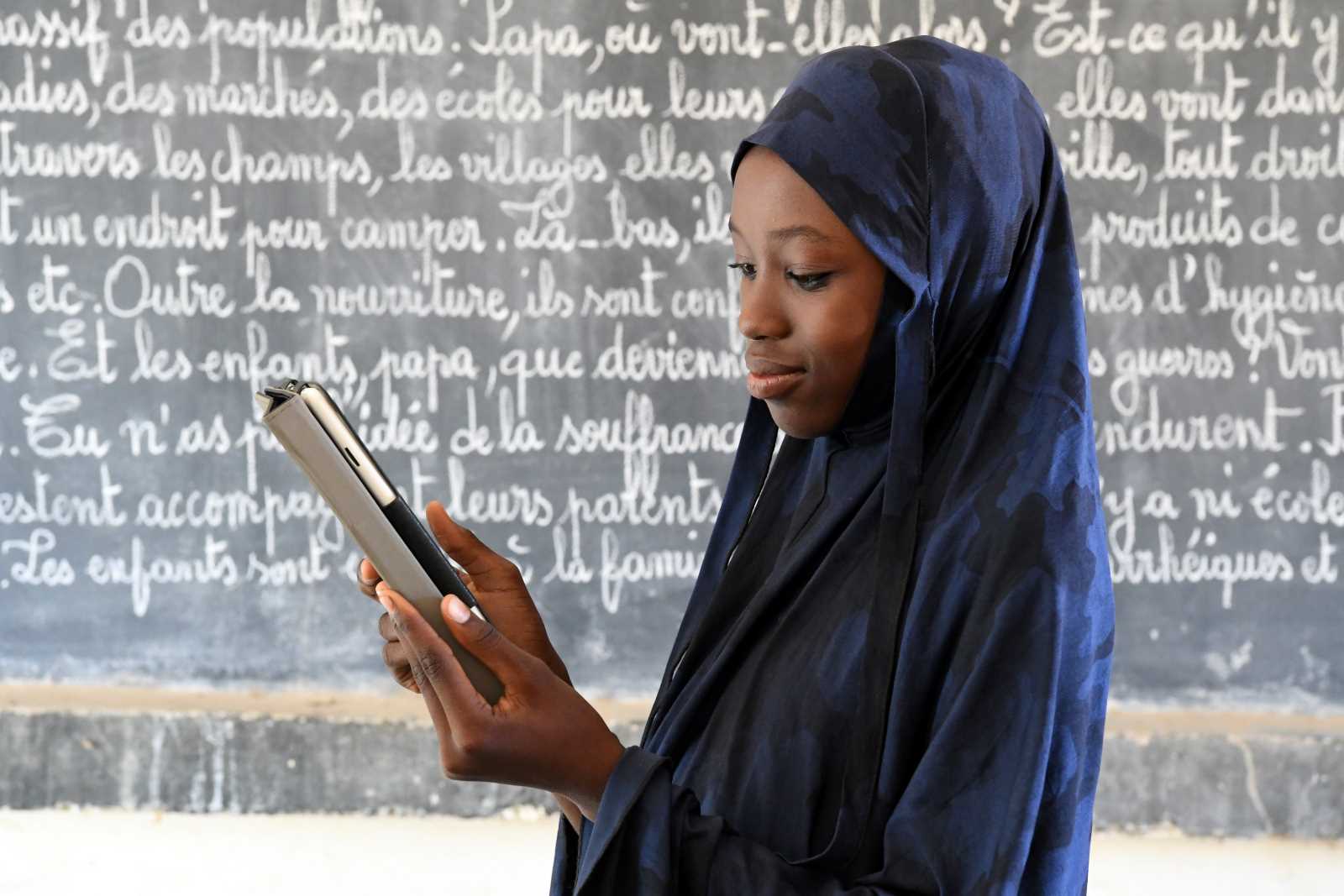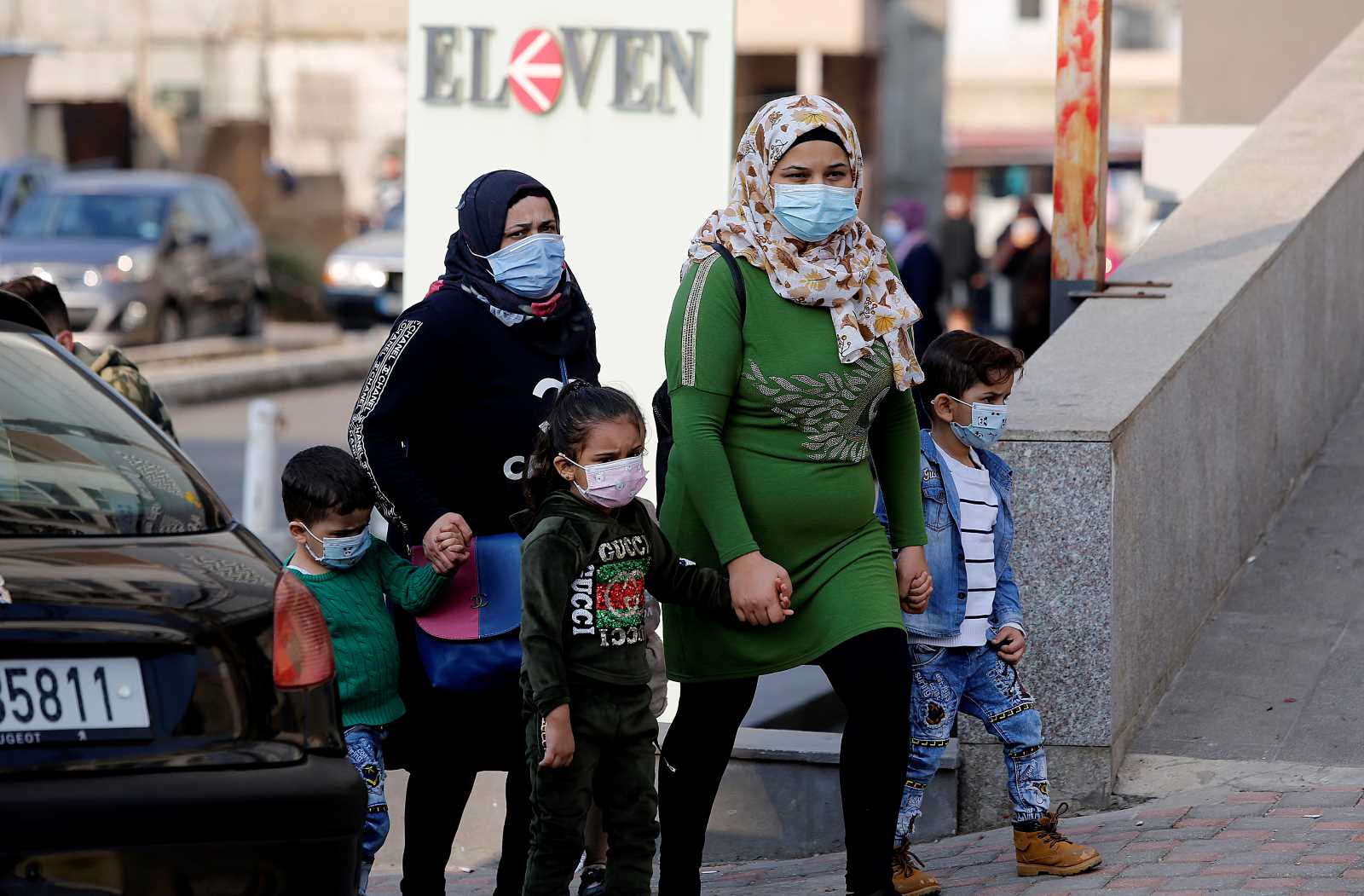Sex education
Face the truth

Due to religious and cultural sensitivities, Nigerians live in denial of just how common teenage sex is. The glaring reality was revealed by the Demographic Health Survey (DHS) in 2013. Only three in ten women reported to first have had sexual intercourse at the age of 20 or later, while 54 % said they had done so before turning 18. A stunning 24 % indicated that they had not even been 15 yet.
The DHS also showed that a mere two percent of sexually active girls between 15 and 19 use contraceptives. An important reason is that they do not have access to contraceptives. It should thus not surprise anybody that 23 % of the girls in this age group have children.
Some girls get pregnant because of voluntary early sex and peer pressure. Others are sexually abused or forced to marry early. In general, they lack proper sex education and information on contraceptives. Very few have access to contraceptives. Condoms, of course, would also protect people from HIV/Aids.
Many teenage girls bask in the euphoria of so far unknown male attention, and some are curious about sex. It makes them more vulnerable that they were raised in a patriarchal society which expects women to be shy and undemanding. Inexperienced teenagers hardly demand that their male partner wear a condom. All too often, they are taken advantage of.
The impacts of teenage pregnancy often ruins girls’ lives, whether they are married or not, whether they engaged in sex willingly or were forced. Typically, they drop out of school and do not acquire any skills that would help them earn money. If they aren’t married already, they normally end up in a bad marriage, wedded to their child’s father who often is too young for parenthood himself.
In many cases, the girls’ young bodies cannot cope with the stress of pregnancy and labour. Vaginal fistulas are a common consequence of lacking antenatal and postnatal care. The implication is that patients become incontinent and ostracised by society. All too often, surgery is not available or not done properly, so the persons concerned become marginalised in the long run.
There are many reports of teenage girls experimenting with various dangerous concoctions in the hope of preventing or ending pregnancy. Medical complications are awful. Abortion is illegal in Nigeria – and illegal abortions tend to be unsafe.
The DHS reported the highest figures for teenage pregnancies in the north-western states of Katsina, Jigawa and Zamfara. These states also have the worst data concerning early marriage, fistulas and access to contraceptives. Unsurprisingly, maternal and infant mortality rates are high too.
In 2013, the National Population Commission (NPC) warned that the number of teenage mothers in Nigeria may rise to 60 million by 2015. It argued that aggressive steps must be taken to stop the trend. In particular, good sex education could make a difference. Some nations provide outspoken and comprehensive sex education to teenagers, helping them to understand what is going on with their bodies and minds. These countries have the lowest rates of teenage pregnancy.
Nigeria, however, is a closeted society. Sexual issues are not discussed freely. Even many married couples do not talk about sex. Advocates of sex education in schools have met with stiff resistance from religious leaders who say that such education would promote immorality. Nigerian society preaches abstinence, ignoring that masses of teenagers are sexually active nonetheless.
In the towns, teenage pregnancy is less prevalent than in rural areas where poverty and illiteracy are worse. But even in a big city a teenage girl is unlikely to go boldly to a family planning centre and demand services. Most are even too embarrassed to ask for condoms or contraceptive pills in a pharmacy.
Some urban parents whose teenage daughters get pregnant ensure that they continue with their education after delivery. Others arrange illegal abortions. Most teenage mothers in cities, however, suffer similar fates as their rural counterparts do: they are tied to a husband they did not really want, are denied education and professional opportunities and all too often struggle with health issues.
Making change happen
In Lagos, the government has made adolescent health a priority. A unit called “Hello Lagos” is promoting sex education and reproductive-health services for youngsters. It is running several centres across the state. They encourage teenagers to abstain from sex until they are old enough to deal with the consequences. At the same time, Hello Lagos has been cooperating with the UN Population Fund (UNFPA) to ensure access to condoms to teenagers who are sexually active. The collaboration involved training and advocacy among health workers to make them less judgmental towards young people.
In northern Nigeria, where early marriage is more prevalent, some non-governmental organisations are reaching out to teenage mothers to-be, encouraging them to access health care to mitigate the complications associated with pregnancy at an early age. In Niger state, the RAiSE Foundation is raising awareness among faith-based and cultural organisations with a focus on ensuring young mothers get antenatal and postnatal care. RAiSE was started by Amina Abubakar Bello, a gynaecologist (and the state governor’s wife). The organisation is proud of maternal and infant mortality rates dropping in the state. In Kano state, the Fistula Foundation has been working for years to assist women access surgeries.
Tackling the health issues is important, but ultimately Nigeria must accept that, in spite of religious and cultural teachings, interest in sexuality is part of adolescence. Teenagers must be assisted to navigate this period successfully and provided with all resources they need.
Damilola Oyedele is a journalist based in Abuja.
damiski22@yahoo.com












